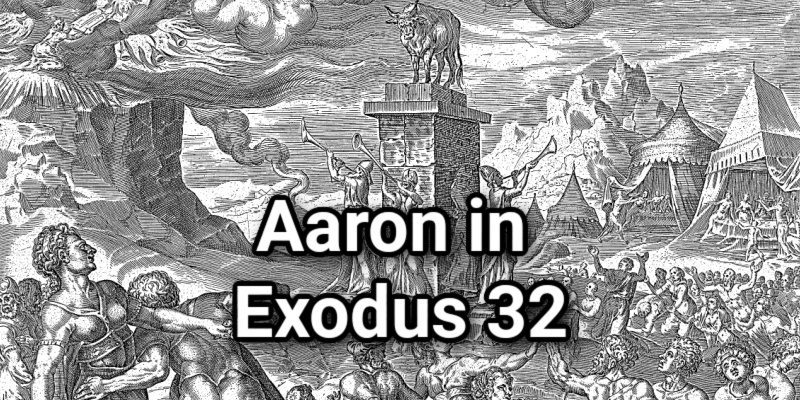Lord’s Library editors offer this short commentary on Aaron in Exodus 32, from its overarching theme of atonement to the golden calf.
Aaron’s role in the episode of the golden calf, as recounted in the Book of Exodus, represents one of the most contentious and instructive events in Biblical history. This incident not only highlights the challenges of leadership and the pitfalls of idolatry but also offers important lessons on repentance and God’s forgiveness.
The golden calf occurred while Moses was on Mount Sinai receiving the Ten Commandments from God (in Exodus 32). During his absence, the people of Israel grew anxious and demanded a tangible god to worship. Left in charge, Aaron caved to the pressure of his people’s demands, instructing them to bring their gold earrings, which he then used to fashion a golden calf.
The Bible states in Exodus 32:4: “And he received them at their hand, and fashioned it with a graving tool, after he had made it a molten calf: and they said, These be thy gods, O Israel, which brought thee up out of the land of Egypt.” This act of creating an idol marks a significant lapse in Aaron’s judgment, directly contravening God’s commandments against idolatry.
Aaron in Exodus 32
The worship of the golden calf incurs the wrath of God, who threatens to destroy the Israelites for their apostasy. Moses intercedes on their behalf, mitigating the divine punishment but not before significant consequences unfold. Upon descending from the mountain and witnessing the idolatry, Moses shatters the tablets of the Ten Commandments in a symbolic act of broken covenant. He then destroys the calf and consecrates the Levites to restore order and reaffirm their commitment to God.
When confronted by Moses, Aaron offers a defense that appears to minimize his responsibility, suggesting the people were set on evil and that the calf emerged miraculously from the fire. See Exodus 32:22-24: “And Aaron said, Let not the anger of my lord wax hot: thou knowest the people, that they are set on mischief. For they said unto me, Make us gods, which shall go before us: for as for this Moses, the man that brought us up out of the land of Egypt, we wot not what is become of him. And I said unto them, Whosoever hath any gold, let them break it off. So they gave it me: then I cast it into the fire, and there came out this calf.”
Despite this, Aaron’s role as a high priest is not stripped from him, suggesting a process of repentance and graceful forgiveness at play. This episode serves as a pivotal moment for Aaron, illustrating the grave consequences of yielding to peer pressure and the importance of unwavering faith in the Lord.
For modern readers, Aaron’s experience with the golden calf serves as a cautionary tale about the importance of spiritual integrity and the dangers of compromising on God’s Word. It also emphasizes the need for strong, principled leadership capable of withstanding popular pressure to conform to ungodly practices. It reassures us of the possibility of forgiveness and restoration after fleshly failure as well.
Lord's Library is a Christian resource hub. Our editors use a variety of internet research methods like search engines, audio and video, AI, consultations with ministry leaders in the field, and more. Lord's Library should never be a substitute for reading your Bible daily as the Scriptures are to be our final authority on all matters. Lord's Library participates in affiliate programs. We may make a small commission from products purchased through this resource.
- What Does the Bible Say About Achievements? With Key Scriptures - April 11, 2025
- What does the Bible Say About Abortion? With Key Scriptures - April 11, 2025
- Prosperity Gospel Meaning in the Scriptures: Is it Biblical? - April 7, 2025












